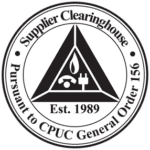Board Administrative and Fiscal Responsibility
Program Overview
Meeting 1 – Board Administrative and Fiscal Responsibility
The Board Administrative and Fiscal Responsibility training focuses on crucial areas related to board operations and fiscal accountability. This section is divided into five key areas:
- Meeting Frequency: This area emphasizes the need for boards to have more than one annual meeting, as required by law. One meeting alone is often insufficient for addressing the various issues that require the board’s attention. Factors such as board size, committee work, meeting length, organizational life-cycle position, and geographical constraints can influence the necessary number of board meetings and optimal frequency. The board must meet frequently enough to fulfill its fiduciary responsibilities without compromising efficiency.
- Executive Compensation: Recognizing the importance of setting appropriate compensation for the chief executive, this area stresses the need for the board to establish a formal process and approve the compensation package. Well-defined guidelines, adherence to IRS safe harbor measures, reliance on comparative data, independent board members making compensation decisions, and documenting the decision-making process are essential. The full board should approve both the process and the resulting compensation package.
- Review of IRS Form 990: This area highlights the importance of the full board reviewing Form 990 before its filing. Form 990 is a significant public document that provides information about the organization, its finances, activities, and governance practices. Board members should be familiar with its contents and ensure that it accurately represents the organization to constituents, donors, and the media.
- Document Destruction and Retention: This area emphasizes the board’s responsibility to ensure that no records are destroyed when the organization is under federal investigation. Federal law outlines the procedures to be followed in such situations. All organizations should have a policy for document destruction and retention to ensure compliance with the law and the preservation of necessary records.
- Whistleblower Process: Recognizing the importance of protecting employees who report improper conduct, this area highlights the need for the board to establish a formal, written whistleblower process. Federal law mandates certain actions when alleged improper conduct is reported. A systematic process to address complaints and prevent retaliation is crucial, and the organization must demonstrate compliance with this process during investigations.
Through these five areas, the Board Administrative and Fiscal Responsibility section of the training program equips boards with the knowledge and practices necessary to ensure effective board operations, fiscal accountability, compliance with laws and regulations, and protection of employees. By focusing on these areas, boards can establish sound governance practices, maintain transparency, and uphold ethical standards within the organization.
















